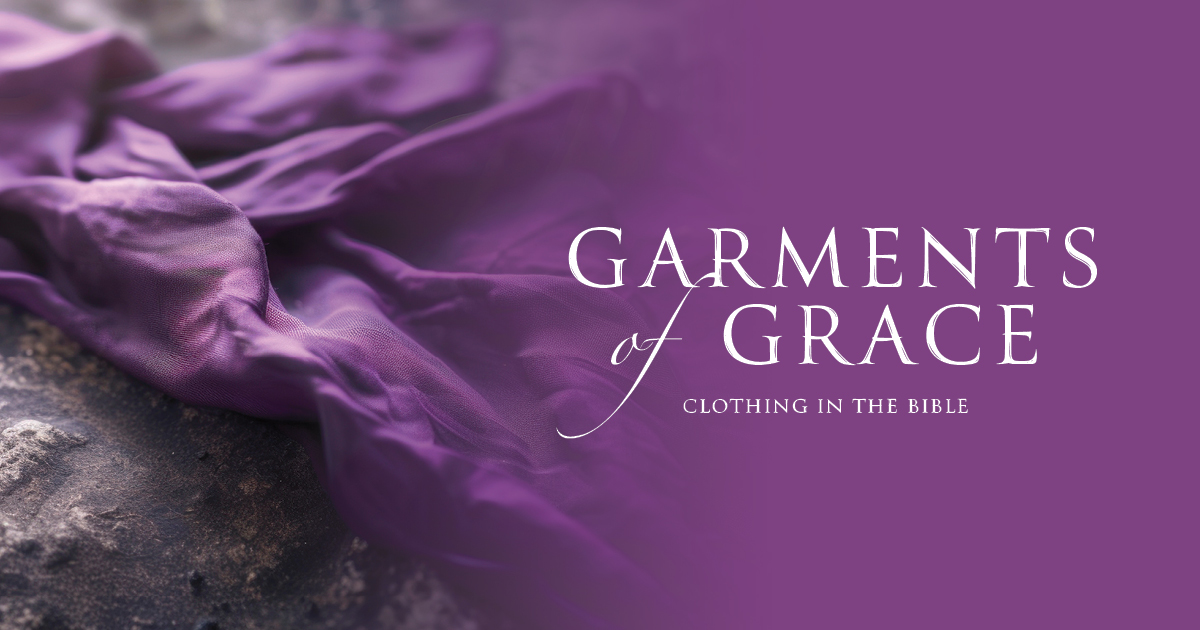Can you think of a symbol of shame in your own life? Maybe it is something visible to others or maybe it is hidden. The good news is that even when we sin, God doesn’t give up on us! How have you experienced His mercy and hope?
Have you ever been tempted to “help” God’s cause by taking matters into your own hands? How might Rebekah and Jacob have demonstrated trust instead?
Are we too casual when we attend worship services? How can we consecrate our hearts and minds as we prepare to meet with the Lord?
How do we react to bad news or dire circumstances? Tearing our clothes, so to speak, or crying out “Aaugh” to the Lord can be a response of faith.
Do we take sin seriously? Do we feel strongly enough to tear our clothes, so to speak? How can we develop hearts that are tender toward Scripture?
What additional lessons about sin, repentance, and loving our enemies can be learned from the book of Jonah? How might we apply these lessons in our daily lives?
Is the “fruit” of your life “in keeping with repentance”? Or, as other translations put it, “consistent with repentance” or “worthy of repentance”? Does your life show that you’ve turned away from sin?
In what ways has sin marred your own family or relationships? How might you as a follower of Christ live redemptively in or even despite difficult situations?
Why is favoritism such an underrated sin? Where else do we see it in Scripture? How have you seen this affect relationships in your own church or workplace?
How well do you understand the Passover? Have you ever been to a Passover Seder, in which the imagery and symbolism are explained from a Messianic Jewish perspective?
Do you truly believe God can provide what you need, such as food, housing, or employment? Is trusting Him for the present easier or more difficult than trusting Him for the future?
Verses 21 and 26 might stand as every Christian parent’s goal for their children. How can we raise godly sons and daughters amid a worldly culture?
Do you believe that the same God who was in control then is in control now? What can you do to encourage your children, grandchildren, or younger friends as they look for a godly spouse?
What does the Bible teach about godly friendship? What is different or distinctive about a Christian friendship compared to a secular or worldly friendship?
Where would we be without God? How does the image of that abandoned child in the story (vv. 4–5) compare to the person who is lost in sin?
What did the clean clothing in Zechariah 3 symbolize? Why does changing from filthy clothes to clean clothes provide a powerful picture of salvation?
What significance did clothing play in the parable of the prodigal son? How does this help us better appreciate God’s grace toward the sinner whoreturns and repents?
The priests were to act in a manner fitting with their responsibilities. What happened to Nadab and Abihu when they failed to do so and why (Lev. 10)?
Why does the psalmist use expressions related to clothing to describe nature? What does the beauty of creation reveal about God?
How does nature point to God’s authority and glory? Describe a moment in your life when nature made you better appreciate an aspect of God’s character.
What has been transformed in your own life or your family by the gospel? Where would you be without Him? Who do you know who needs to hear this good news?
Why are we often preoccupied with external appearances? What contributes to that focus? How can we instead strive for inner beauty?
What was the significance of Jesus’ baby clothes? Why do you think He arrived with such humble beginnings?
Have you trusted Christ for this victory, have you believed in Him for salvation? Let today be the day you accept His gift of love and eternal life.
How does biblical “servant leadership” differ from worldly leadership? Have you ever seen it in action? If you are a leader, how might you grow in the area of servant leadership?
How are you preparing for spiritual battle? What practices can you begin (or continue) to ensure you are strong in the Lord?
What do you rely on for strength? Do you have an item of clothing (or something else) that makes you feel confident? What can we learn from David’s example?
How does Jesus’ reminder that God clothes the flowers change our perspective on our needs and desires? How can social media, for example, interfere with this instruction to seek first God’s kingdom (Matt. 6:34)?
Read about Dorcas (also called Tabitha) in Acts 9:36–42. What can we learn about clothing ourselves with kindness from her example?
Of all the virtues listed in Colossians 3, on which one do you need to focus the most at this time? If you’re not sure, choose love, “which binds them all together in perfect unity” (v. 14).
What key truths or lessons have you learned through our month’s study of clothing imagery in Scripture? How do you think God wants you to apply them in the days ahead?
